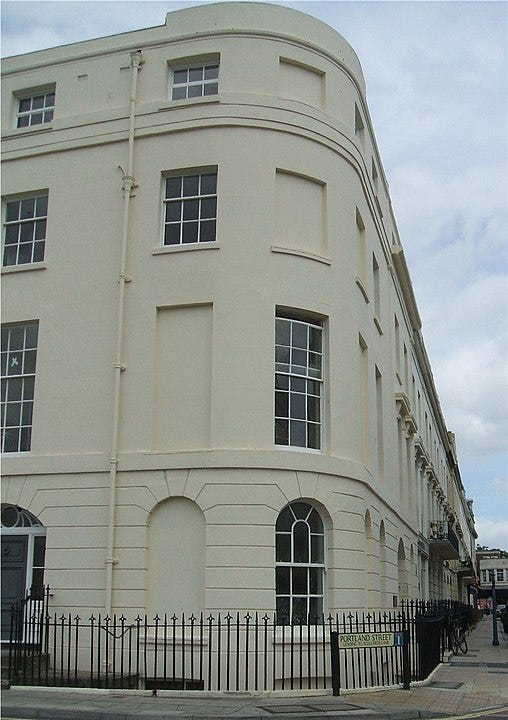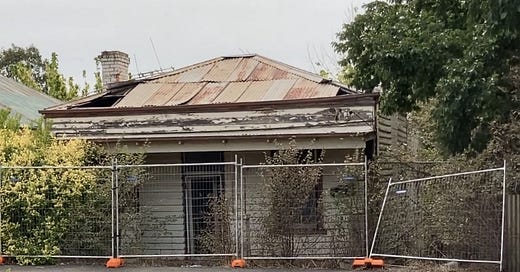In this episode, we explore how one everyday aspect of the possession-economy creates wastefulness, abuse and misery right around the world.
One of the more interesting characteristics of a possession-based economics is its often-arbitrary separation between the ‘haves’ and the ‘have-nots’ - and one of the most explicit forms of this is in the respective roles, responsibilities and relationships between ‘landlord’ and ‘tenant’. What’s perhaps most extraordinary is just how one-sided those relationships usually are - and how destructive they are, too. For example, whilst the term ‘tenant’ literally means ‘one who holds’, it’s the ‘landlord’ rather than the ‘tenant’ who actually holds the nominal ‘rights’ to the place: often the only real ‘right’ the tenant may have is the responsibility to pay the landlord’s mortgage - or, literally. ‘death-pledge’.
The most obvious problem with the landlord / tenant system is that it’s in neither party’s interest to maintain the place. To give a personal example, a while back, at one place where I lived, there was a violent storm, during which one of the fly-screens was wrenched off and blown down the road. It needed repair, obviously - but who should pay for that? The building is the landlord’s property, so why should I pay for it? - especially as I’m not allowed to make it cheaper by doing the repair myself? But if I’m the tenant, I’d be the only one to get the benefit of the repair - so why should the landlord have to pay for it? The result is that the broken fly-screen is still languishing in the shed, still unrepaired after a myriad of months; and the window was unusable too, because the fly-screen, the house would fill with flies in a matter of minutes. If that kind of incident happens just once or twice, it’s no more than a nuisance, of course: it doesn’t really matter all that much. But when happens repeatedly over time, this pattern of “Whatever it it is, it’s always Somebody Else’s Problem’ leads relentlessly further and further into decrepitude:
And by the time it reaches that kind of state, there’s nothing left that’s usable by anyone.
What a waste. Literally.
At least this next one isn’t around any more - or we hope it isn’t, anyway. This dates back to 1696, and was first attempt, in England, at least, to introduce something resembling an income-tax. This was in a culture that would not accept any government review of what people earned (or stolen, to be more accurate in so many cases…), so they did it via a Window Tax - simply counting the windows from the outside, calculating the requisite fee, and sending the bill to the landowner. To be fair to the poor, anyone living in a house with less than seven windows was not required to pay anything. In those times, though, landowners might be renting out hundreds of houses, or huge cramped tenement-blocks, which would certainly have enough windows to incur the tax. The landlords’ solution? - brick up enough windows to get the number small enough to avoid or minimise the tax.

Sure, doing that saved the landlord a sizeable fee - but the tenants faced a serious penalty, not just in loss of light and ventilation, but in increased risk of disease, such as typhus, smallpox and cholera. In England, the tax was finally repealed in 1851, because of public clamour about those health-impacts, and the very real risks of lethal epidemics spreading fast in an already overcrowded city. Apparently no-one seems to have considered it possible to get rich landlords to actually pay their proper due without forcing others to pay it for them - but that’s a problem that still remains to this day…
What a waste. Literally.
And talking of unpaid taxes, here in Australia there are now all too many ways in which the overall housing-market has become little more than a money-laundering scam. One example is that a huge growth sector has been selling new houses or apartments to mid-wealthy Chinese. In most cases, it seems, they don’t actually want the houses themselves: they’ll probably never live there, nor visit there. They don’t even want it for use in that other ever-popular Australian scam of ‘buy-to-let’. All too often, it seems, the real reason for the purchase is as somewhere to park some sizeable amount of money (often questionably-acquired?) in a place that’s out of sight and reach of the Chinese government. The real result? - housing prices rise and rise and rise, for houses that no-one will ever use; the housing-stock becomes less and less available to everyone else; and both the Australian and Chinese governments lose out on much-needed tax and revenue. And builders spend their working lives creating homes that will remain empty forever, using resources that - as a nation - we really can’t afford to waste in this way.
What a waste. Literally.
Another variant of the same schema is the whole mess around ‘second homes’. House-prices in the city are ludicrously high - with the pricing, again driven by the kinds of scams. But that means that prices in more rural places are, by comparison, often much cheaper. If it’s desirable place - in a village on the coast, perhaps, or just some comfortable distance from the city - then city people can afford to buy a house that they don’t actually live in, but merely visit there from to time. The result is that families who do live there year-round will find themselves priced out of somewhere to live, as the housing-stock in the area vanishes into unused and unusable ‘second-homes’.
What a waste. Literally.
And one more mess for now, again specific to Australia, though no doubt other countries will have their own equivalents too. In this case, called negative-gearing, it it’s a bizarre example of what is almost literally a government-funded tax-scam. When someone purchases a house for their own use, they can’t can’t reclaim any of the costs for tax-purposes. No surprise there. But if they instead do it as a ‘buy for rent’, they can recover most if not all of the cost, subsidised by the government - and the tenant in effect pays the rest of the mortgage (literally, ‘mort-gage’, or ‘death-pledge’). The result? - a relatively-wealthy person in effect gains a house at no cost to themselves; house-prices and rental-rates continue to rise far beyond the reach of perhaps half of the population; and the taxpayers - including those priced-out tenants - are the ones end up paying the rest of the bill.
What a waste. Literally.
Scam after scam after scam - the usual results of a money-based possession-economy, endlessly transferring each country’s resources to wherever they are least needed, and relentless driving ever-increasing inequality towards a level where not just the housing-stock, but society itself, will find itself collapsing into decrepitude. Not A Good Idea… Yes, we really do need to better than that…




Hi Tom, The government support for such activities is criminal and only serves to increase the divide between the "haves" and the "have nots" and the contribution of the tax payer to maintaining the practice is just down right ludicrous.
Financial equality will never be achieved if the very people who should be reducing the divide are the ones working against it.
Politics is just a dirty business, with a large proportion of the rich making campaign contributions to ensure continued revenue generation opportunities.